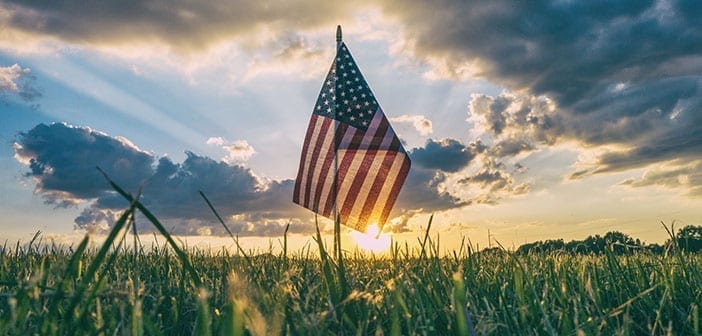Advocacy, Veteran's Affairs
Veterans’ Advocates Upset that Congress Denies VA from Considering Medical Cannabis
United States military veterans are becoming more vocal about seeking legal medical cannabis for a variety of illnesses including chronic pain and post-traumatic stress disorder (PTSD). Yet their health concerns and requests for more research on cannabis as an alternative therapy have become a political football in the past six weeks.
Robert Wilkie, the newly sworn-in secretary of the Department of Veterans Affairs (VA), with just one month on the job, received a letter signed by a bipartisan group of senators on Aug. 30, 2018, urging him to enable research and even clinical trials on medical cannabis as an alternative to opioids. Wilkie responded by saying he’d “follow the federal law.”
Several days later, on Sept. 5, 2018, Democratic Sens. Bill Nelson of Florida and Brian Schatz of Hawaii introduced legislationthat would effectively allow veterans to possess cannabis in the 31 states and Washington, D.C. where medical marijuana is legal. Their bill, known as the Veterans Medical Marijuana Safe Harbor Act, sought to allow government doctors to recommend cannabis and fund clinical research within the VA.
The non-profit Veterans Cannabis Coalition (VCC), formed in late 2017 by veterans of Operation Iraqi Freedom, thanked Nelson and Schatz and praised the bill, the first of its kind introduced in the Senate.
“We believe this bill recognizes and works to end the absurd and destructive Catch-22 that veterans who medicate with cannabis find themselves in,” read the VCC statement. The statement further characterized the veterans’ dilemma: “…the federal government criminalizes them for possession, hinders them in talking to their primary care VA doctors about cannabis, and blocks nearly all research into cannabis’ medical efficacy. This state of affairs is preventing millions of veterans from accessing a substance that anecdotal, observational, and clinical evidence all indicate possesses incredible medical value in treating some of the most common injuries and conditions veterans must manage.”
Similar legislation, the Veterans Equal Access Act introduced in March 2017 by Democratic U.S. Rep. Earl Blumenauer of Oregon, was approved in June 2018.
Then came the bad news.
Blumenauer’s bill moved to a conference committee on Sept. 10, 2018, where the leadership rejected wording that would have lifted the prohibition against VA doctors recommending medical marijuana.
VCC founder and CEO Eric Goepel called the decision a “backroom deal.”
“The fact that Pete Sessions, as chair of the House Rules Committee, has blocked the veterans Equal Access Amendment specifically and cannabis bills generally without anything as much as light admonishment from House leadership, shows where the conference’s true feelings lie,” said Goepel, an Army veteran who served for seven years, deploying twice to Iraq and once to the Philippines.
“That they would do this in an election year, on two issues with overwhelming public support — improving veterans healthcare and medical cannabis access — shows contempt for their constituents at worst and ignorance at best,” Goepel told Marijuana.com.
The House Rules Committee under Republican U.S. Rep. Pete Sessions of Texas has the power to dictate what makes it to a congressional vote and what doesn’t, as Sessions explained on his website: “The Rules Committee assignment has allowed me to use my experience and personal values to influence every piece of legislation before it reaches the House floor in a responsible, reform-minded manner.”
Michael Krawitz, executive director of Veterans for Medical Cannabis Access, said veterans’ disappointment with the House leadership is becoming difficult to contain. “What kind of message does this send to veterans? That the United States Congress, like the VA itself, is willing to sacrifice our veterans medical needs for politics as usual?”
A disabled U.S. Air Force veteran, Krawitz told Marijuana.com that politics as usual has “gotten us into this mess with veterans leading suicide, overdose and homelessness.”
The VA National Center on Homelessness among veterans released a report in February 2018, which noted that in 2014 an average of 20 veterans per day died by suicide and that “homelessness is associated with an increased rate of all-cause mortality and of suicide in veterans.” Nearly one-third of veterans who commit suicide are homeless, according to the report.
“Medical Cannabis is a very powerful tool that is as of yet largely unexplored by the system. It is time for the VA to learn about the advances we have made in this area,” Krawitz said.
Meanwhile, President Donald Trump signed a $200 billion package of spending bills for funding veterans on Sept. 21, 2018, in Las Vegas.
Anything in there for veterans who need medical cannabis?
“No, all the veterans and cannabis-related provisions were stripped out,” Goepel said.
Read more from the source: Marijuana.com


